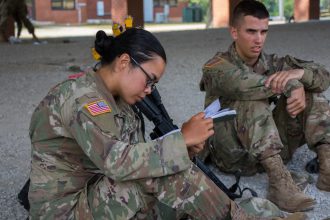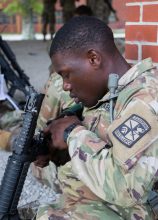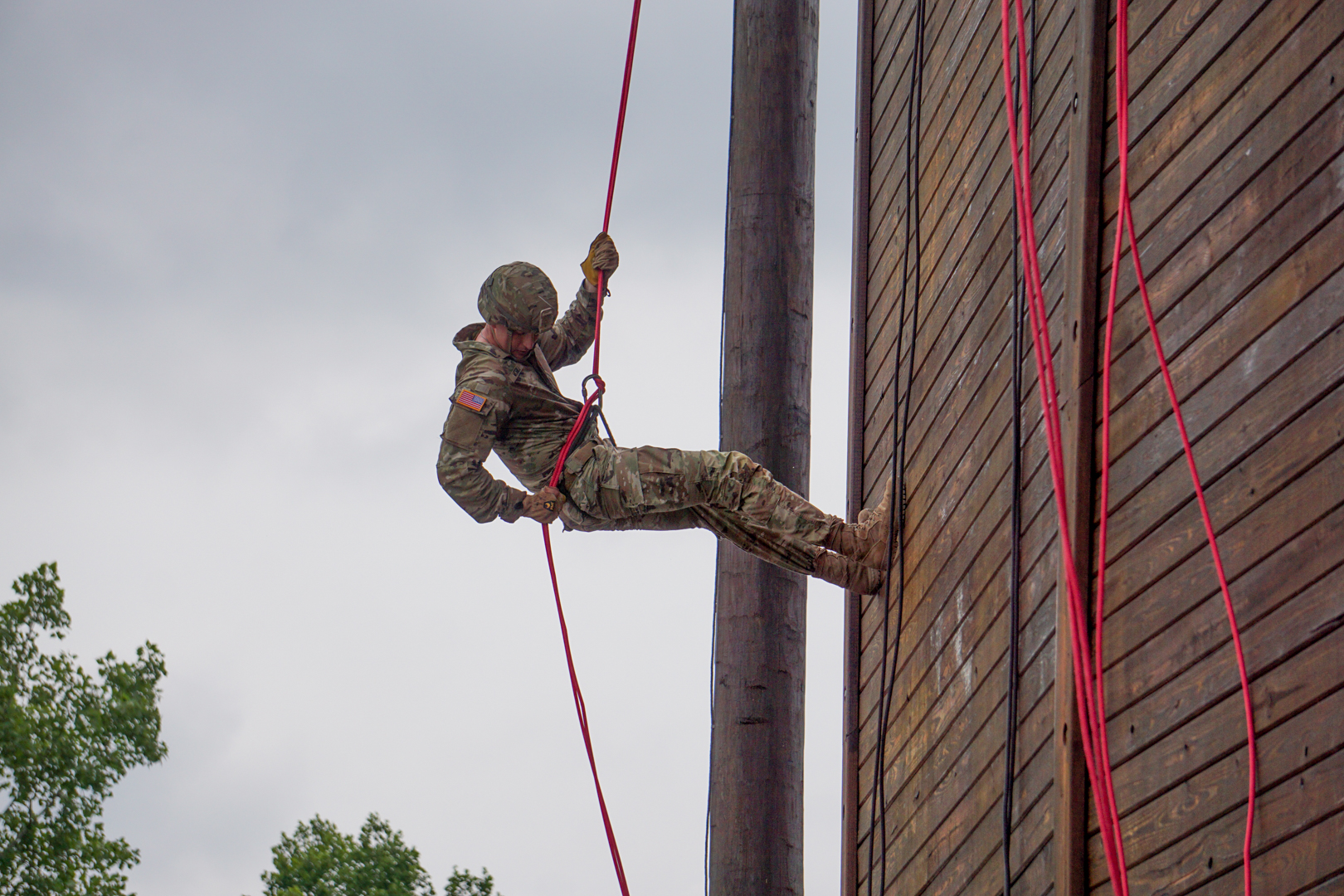FORT KNOX, Ky. – Advanced Camp Cadets of 11th Regiment reviewed their platoon standard operating procedures (SOPs) in preparation for their upcoming field training exercise (FTX), July 30.

(Left) 11th Regiment Advanced Camp Cadet Kelly Vu, University of Oklahoma, takes notes during a squad brief on standard operating procedures (SOPs) in preparation for her platoon’s field training exercise (FTX) at Fort Knox, Ky., July 30, 2019. | Photo by Mary Kate Griffin, CST Public Affairs Office.
According to Army Training Publication 3-90.90, an SOP provides the instructions for performing an operating procedure, which is an approved process to complete a complex task.
“An SOP details how, when, and why we move during a mission,” said Cadet Braxton McDuffie attending The Citadel. “Reviewing SOPs ensures that everyone is on the same page. I’m looking forward to seeing everyone’s ‘aha’ moment.”
Every Army unit has its own SOP that is specific to that unit’s mission, enemy, terrain, troop availability and civilian considerations (METTC). For the purpose of training, each Reserve Officer Training Corps (ROTC) unit has its own SOPs which, according to one Missouri State University Cadet, makes constructing platoon SOPs challenging.
“Each Cadet is accustomed to a different SOP when conducting FTXs and missions,” said Cadet Tori Kraft. “During these SOP briefs, we’re having to combine our own methods in a way that is most beneficial to our own missions here at camp.”

11th Regiment Advanced Camp Cadet Teandre Brown, Florida A&M University, cleans his M4 rifle while he waits for his standard operating procedure (SOP) brief to begin at Fort Knox, Ky., July 30, 2019. | Photo by Mary Kate Griffin, CST Public Affairs Office.
Kraft explained that reviewing SOPs as a platoon makes executing an FTX easier because it ensures that each Cadet knows what to expect. However, the SOPs that Cadets establish for the beginning of their FTX are tentative as they are subject to change with each new objective.
“Roles will change,” said Marian Coats, a Cadet at the University of South Carolina. “We may change our SOPs at the end of our first FTX lane, but that will be METTC dependent.”
FTXs gradually become more independent of Cadre instruction throughout the crawl, walk and run phases. During the crawl phase, Cadets conduct their first lane with Cadre’s close instruction. Once they enter the run phase, Cadets will conduct FTXs with Cadre merely supervising and evaluating.
“I think we will be able to learn and retain a lot of knowledge from the FTX progression,” said Kraft. “We’ll be able to return to our schools and help the future leaders that are coming through as Cadets. I think this will be beneficial to our careers as well as those future leaders.”




